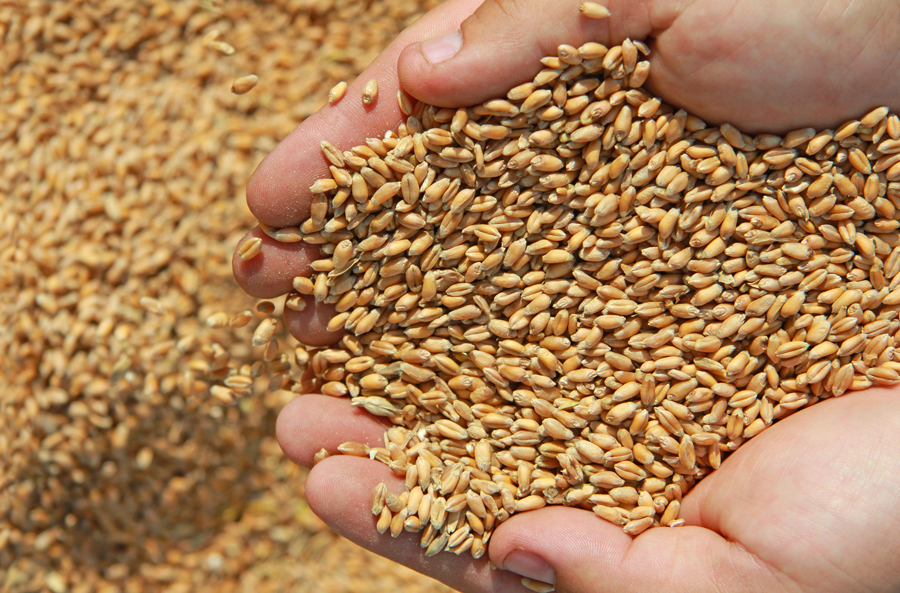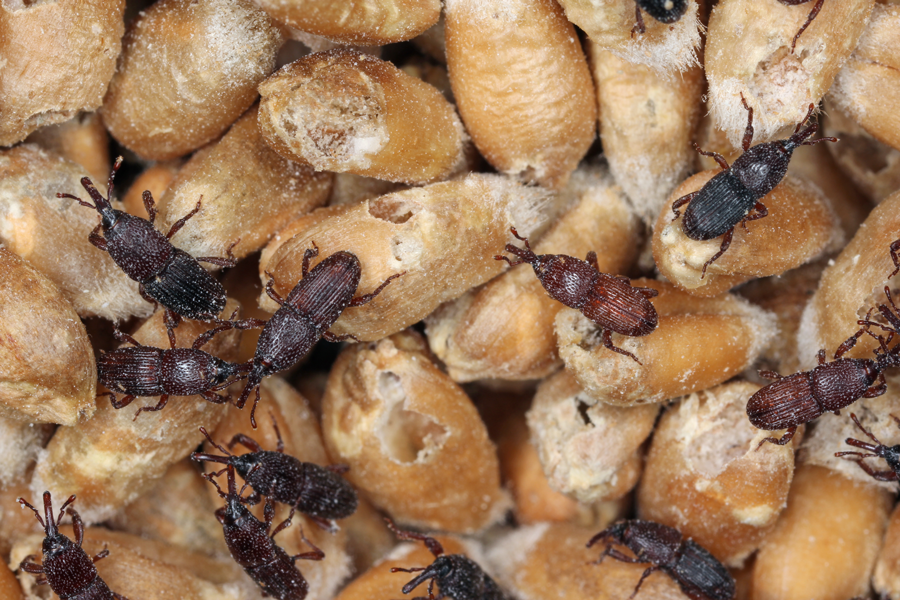Secure your grain store
24th February 2021
Farmers invest large amounts of capital, time and effort into producing and harvesting their crop. The storage of the grain post-harvest is a crucial part of that dedicated process.
The ability to secure grain stores and prevent loss of yield is a key part of crop management, as it enables farmers to retain stock and watch global fluctuations of grain prices – in order to ultimately sell when prices are high. Some farmers may choose to store their grain for up to 12 months.
Between 2019 and 2020, the UK’s wheat yield fell by 37.5 per cent, but as prices keep rising, it is more important than ever to protect your crops in store. Insect damage to stored crops is a curse that many arable farmers know all too well. The cost of grain rejection due to pest damage can reach £50/tonne, including the loss of premium.
Grain store insect pests are separated into primary (which infect the undamaged grains) and secondary (which feed on damaged grains and dust).
The most common and damaging pest is the Grain Weevil (Sitophilus granaries), a primary pest. They are seen across the UK and continue to spread through infected grains and grain vehicles. Within its nine-month lifespan, a female can lay 200 eggs, each of which bores into the centre of a grain.
The most common secondary pest is the Saw Toothed Grain Beetle (Oryzaephilus surinamensis). The larvae of this beetle feed on the broken kernels left behind by primary pests such as the grain weevil. Both the Grain Weevil and the Saw Toothed Grain Beetle are hardy and can survive in the cracks and crevices of the grain store over winter.
The ideal grain store should be clean, dry, well-ventilated, rodent-proof and watertight. The first step to ensure safe and effective long-term storage is to make sure that the store is clean. Cleaning of the grain store should take place as early as possible – around two months before intake. This guarantees that there is enough time to fix any problems that you might find during your inspection. There’s nothing worse than finding out that your roof has a leak when the grain is inside and now needs treating.
It is especially important to focus on the hard-to-reach areas such as the roof, handling equipment and under the floor. Pests can be present, even in seemingly empty stores as grain or grain dust from the previous harvest can provide a food source. It might be beneficial to use an industrial vacuum cleaner or high-pressure airline to ensure that the store is as clean as possible.
Once the store is clean and dry, glue or pitfall traps can be used to see if pests are present. If they are, Lodi recommends using a smoke disinfectant, such as Lodi Pro 90C+. Smoke insecticides, such as the Pro 90C+, benefit from being simple to use and 100 per cent effective against a wide range of pests, including Grain Weevils, Saw-Toothed Grain Beetles, Red-Rust Flour Beetles, Indian Meal Moths and Grain Mites. Simply light the wick and leave the smoke to work its way through the entire building and into every nook and cranny. Each tin contains enough product to cover 525 cubic metres and this can be done any time in between cleaning and the inlet.
It’s so important to get the disinfection right to ensure that your store is ready for your grain.
Here are Lodi’s tips for best practise when using smoke insecticides:
- Before you start to fumigate, make sure you have shut and sealed any doors and drawn any shutters apart from the exit.
- Shake all the generators to loosen the powder inside.
- Place the generators on a fully heatproof surface.
- If you are using multiple smoke generators, make sure you light the generator furthest away from the exit first and work towards the exit. You also need to make sure that all of your Pro 90C+ are prepped and ready before you light the first one.
- Leave the store sealed overnight for the best result and then open the doors to air it for a few hours.
Rodents are also responsible for high levels of grain spoilage. As well as eating the grain, they contaminate large amounts through their waste products and can damage the store building itself by their gnawing and burrowing. You can browse Lodi’s range of rodenticides here.
If you would like more information, email contact@lodi-uk.com or visit their website here.


